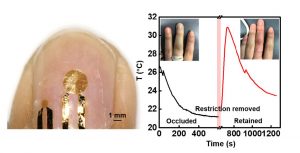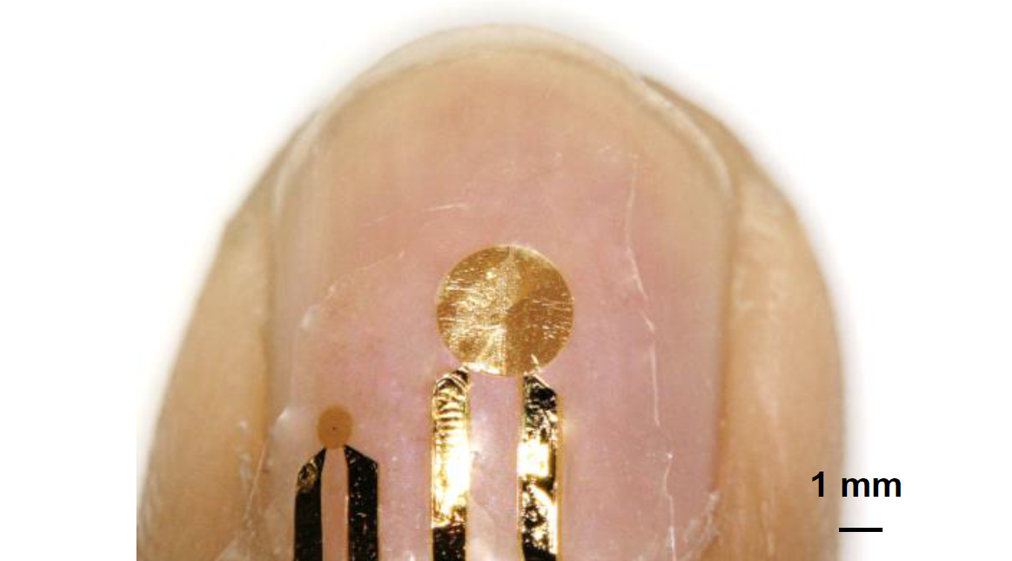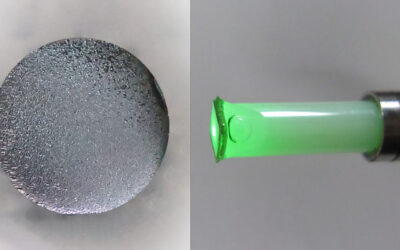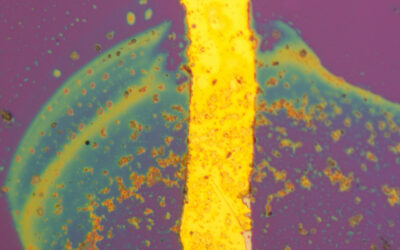Miniaturized wearable devices that can precisely and continuously monitor physiological state have immense potential in lowering the cost and effectiveness of healthcare.
The fingernail, which includes the nail plate, nail folds, and nail bed, is commonly used as a reliable means to gauge health status, providing information on nutritional deficiencies, inflammation, infection, and other imbalances occurring within the body. With its rigid, transparent surface, the nail plate can serve as a convenient mounting location for a sensor that measures the thermal conductivity of the underlying nail bed tissue.
In an Advanced Functional Materials article, a team of researchers from Northwestern University, along with their colleagues from Tsinghua University and University of Central Florida, develop a non-invasive, fingernail-mounted sensor that can collect thermal data of the nail bed tissue in real-time.
These millimeter-scale devices, layered with silicone and polyimide to protect the gold sensing components, are thin and flexible, ensuring close conformation to the nail plate. A power supply is connected to the device to obtain temperature measurements, and by coupling with computational methods, the thermal transport properties can be determined. Synthetic test platforms composed of silicone and having similar thicknesses and thermal properties to fingernails were first used to establish the basic operating principles of different-sized sensors.
Proof-of-concept experiments were carried out on human subjects in real-time to evaluate the sensor performance. The device was able to track changes in thermal transport characteristics of the nail bed tissue under different physiological conditions, including before and after exercise and after cooling the finger.

















